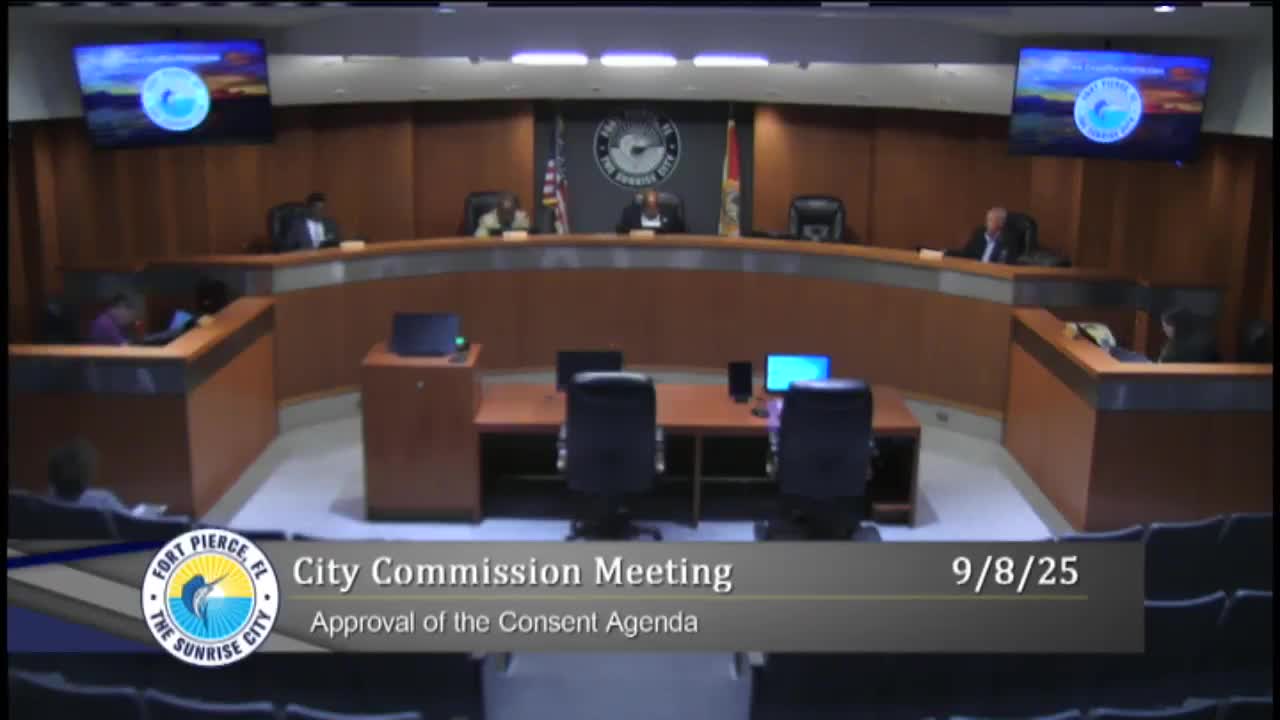Article not found
This article is no longer available. But don't worry—we've gathered other articles that discuss the same topic.
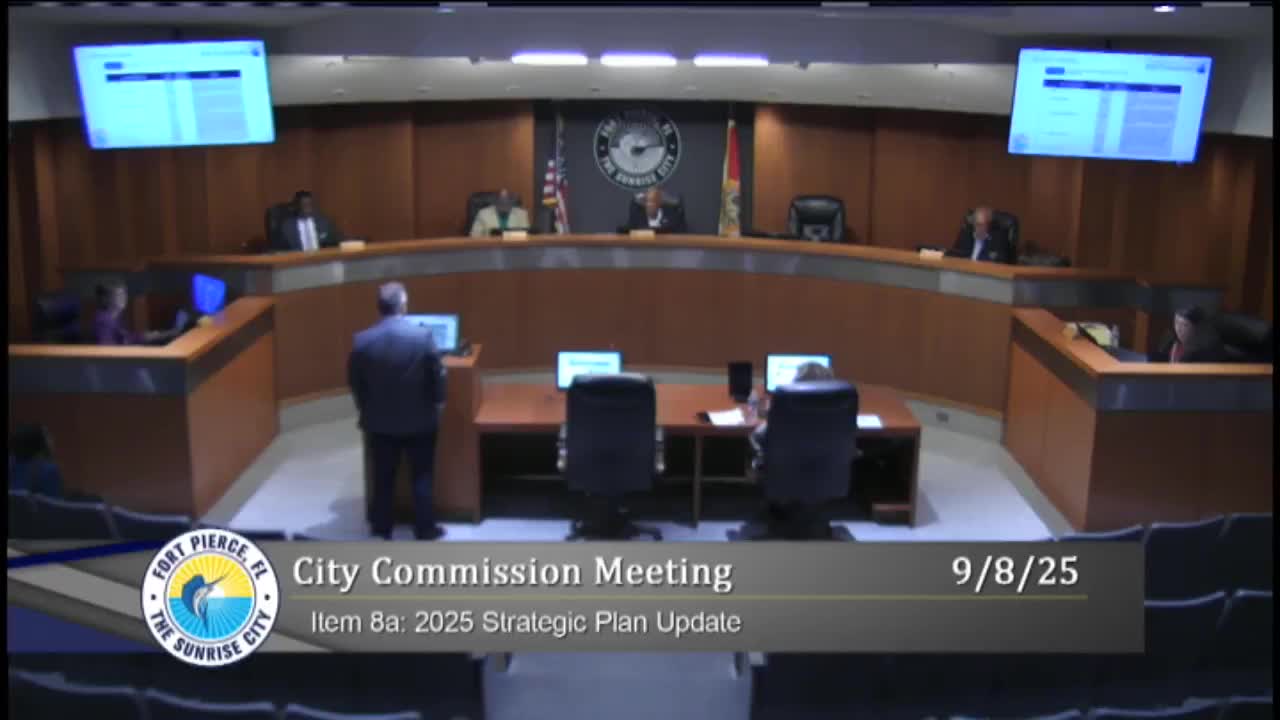
Fort Pierce Utility Authority says new wastewater plant on schedule; $1 million EPA grant expected
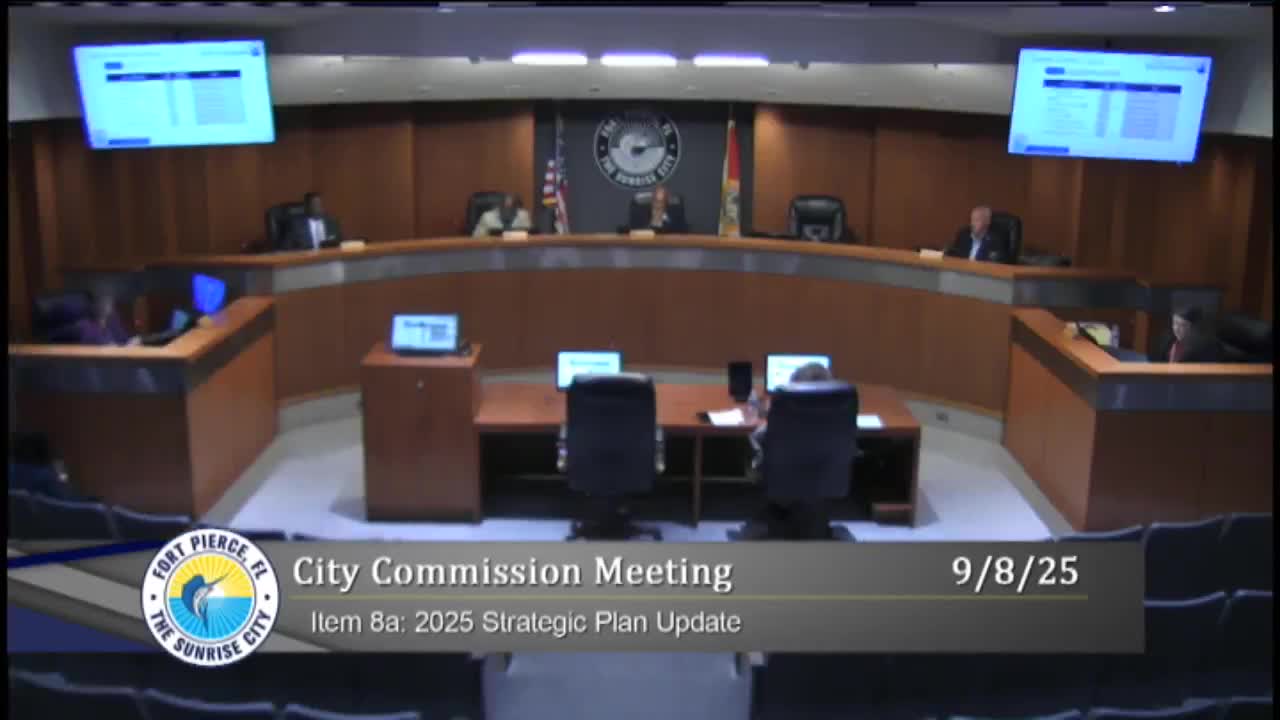
Commission continues King's Landing Villas Plat amendment to Sept. 15 after developer seeks more time to secure bond
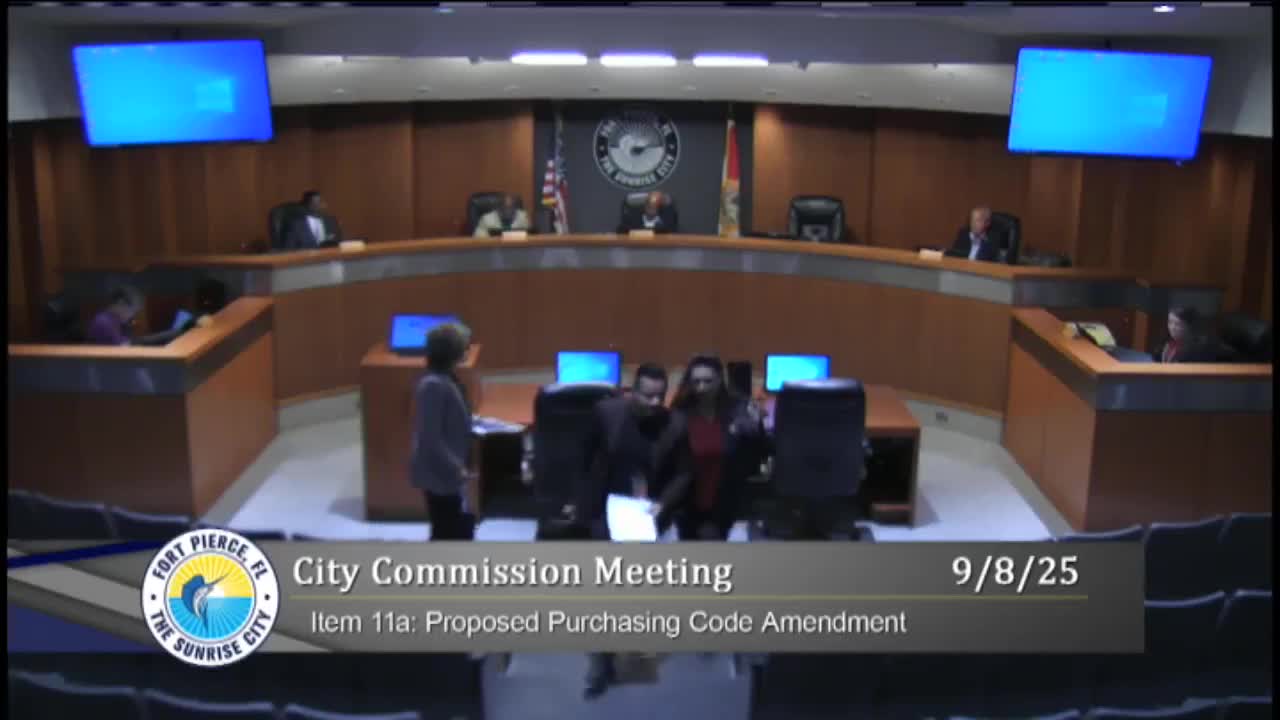
City staff outline proposed procurement code rewrite, including ethics, protests and suspension/debarment
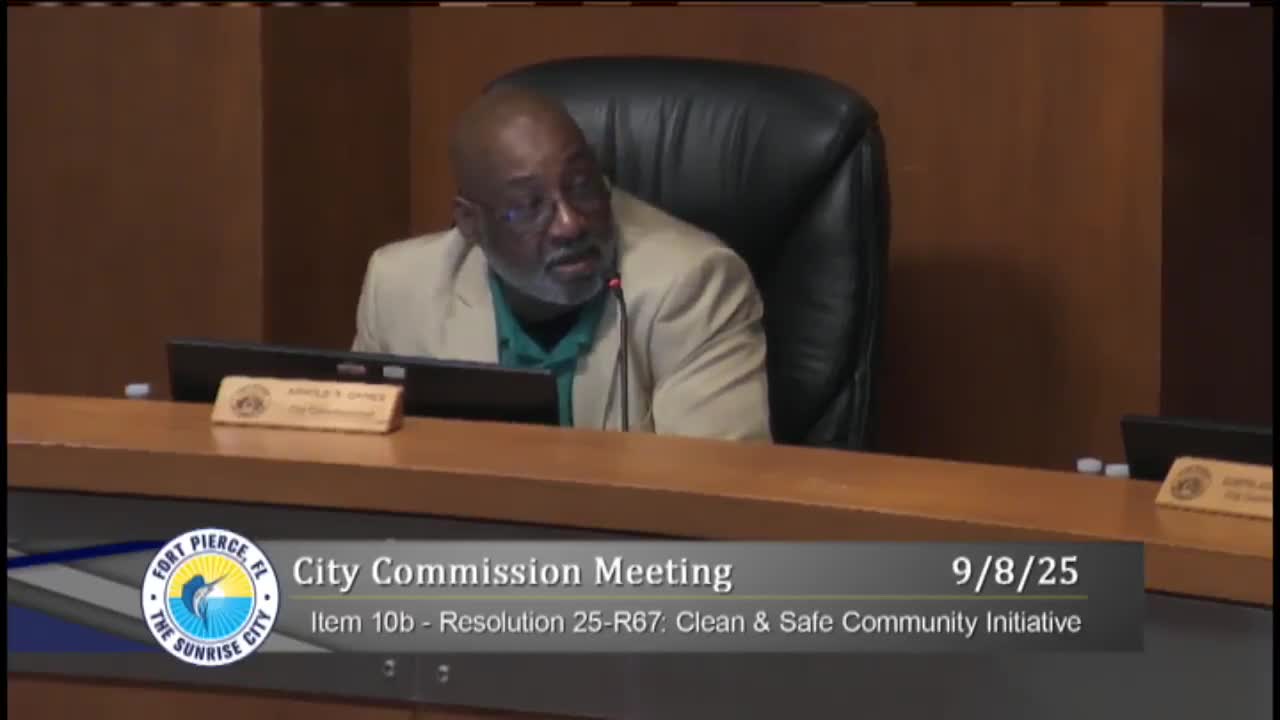
Commission renews Clean and Safe Community Initiative; program has generated nearly $2.7 million over eight years
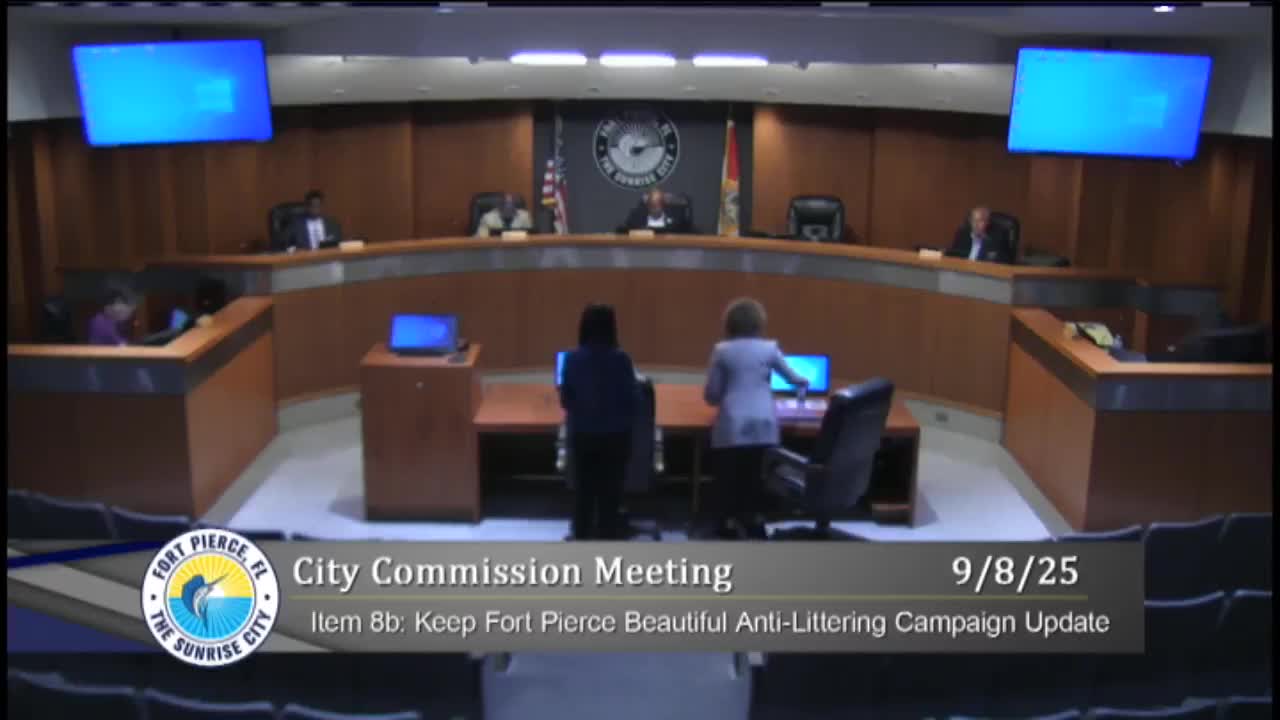
Keep Fort Pierce Beautiful launches multilingual anti‑litter campaign, city to expand outreach and partnerships
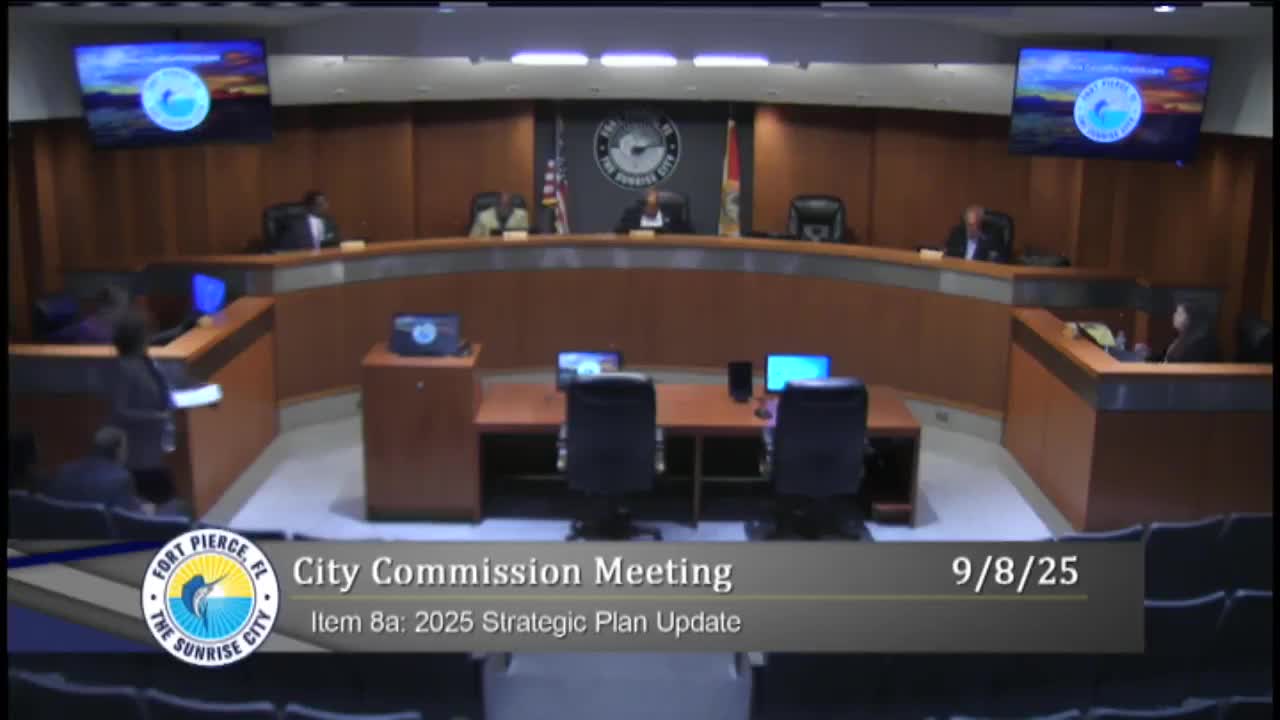
City manager presents third-quarter strategic-plan update; budget adoption scheduled for this evening
